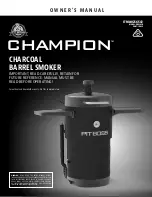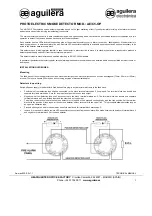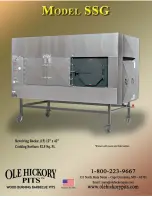
VESDA VLC-400 Product Guide
VESDA by Xtralis
28
www.xtralis.com
7.10 Setting the Address Loop DIP switches
The VESDA VLC-400 uses the standard Apollo address protocol. The valid address range for the VESDA
VLC-400 is from 1 to 126.
Note:
Addresses 0 and 127 are illegal addresses and the Fault LED shall be illuminated to indicate a fault
condition.
The loop address, in binary form, is set via a DIP switch mounted on the termination card. The address of the
detector is set using switches 1 through 7 (see Figure 7-4).
Note:
When decoding the address setting on the DIP switch, the OFF position is seen as a 1 in binary
address form.
Figure 7-4 and Figure 7-5 DIP Switch Setting for Address 82 (2+16+64) show examples of setting the address
loop DIP switch to specific addresses.
A simple way of reading the address on the DIP switch is to add up all the numbers where the switches are
set to OFF. In the example below (Figure 7-4), positions 4, 8 and 16 are set to off, so the address is 28.
Figure 7-4: DIP Switch Setting for Address 28 (4+8+16)
For example to set the loop address to 82, set the DIP switch as shown in Figure 7-5 below (see NOTE
above).
Figure 7-5: DIP Switch Setting for Address 82 (2+16+64)
Section 12 shows the DIP switch settings for each of the possible 127 address settings, including the two
illegal addresses.
7.11 Closing up the detector
Before closing the front cover:
l
Ensure the LED wiring loom is properly connected
l
Ensure the plastic tie attaching the front cover to the enclosure is in place. If necessary, re-install it by
holding the cover, twisting the plastic tie through 90 degrees and inserting the end into the keyway
provided connector.
7.12 Pipe bonding check
Check bonding of pipes:
1. Check all plastic pipe-connecting joints are fully sealed and bonded with glue to eliminate unwanted air
leaks. If applicable, check all metal pipe joints are sealed to eliminate unwanted air leaks.
2. Check the pipe joint at the air inlet to the VESDA VLC-400 is not bonded and fits firmly into the air inlet
socket.
WARNING:
The Pipes MUST NOT be glued to the detector inlet manifold.
3. Check all pipes are securely attached to a mounting surface with the proper fasteners.
4. Check the number and sizes of the sampling air holes on the pipes are correct.
5. Check the routing of the pipes is correct with reference to the site plan.













































